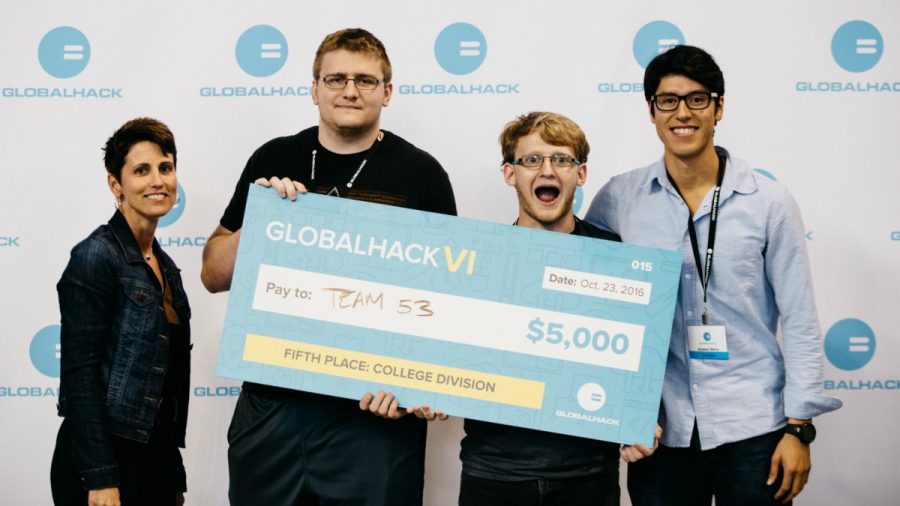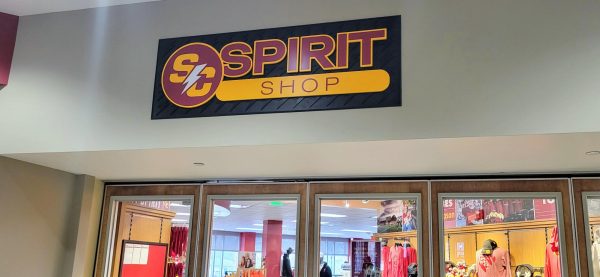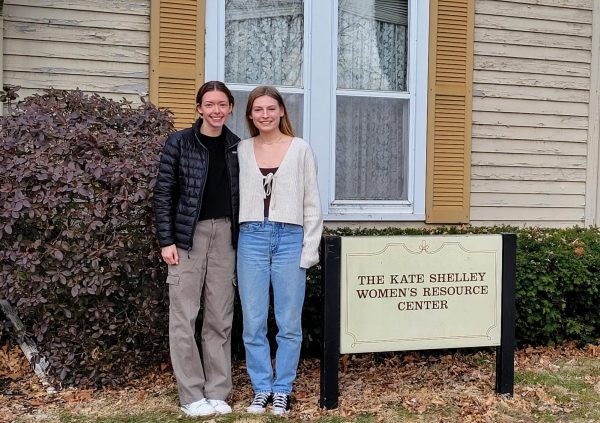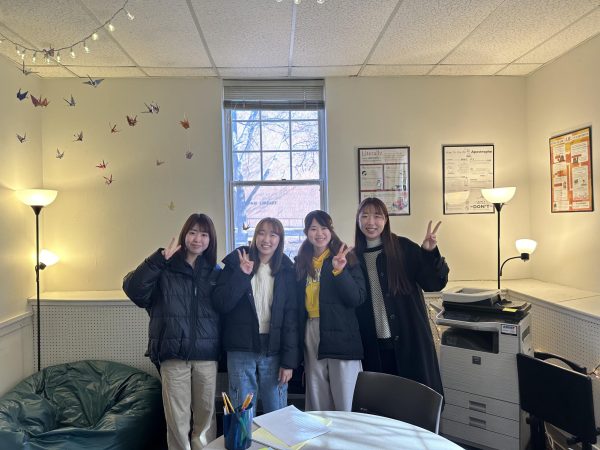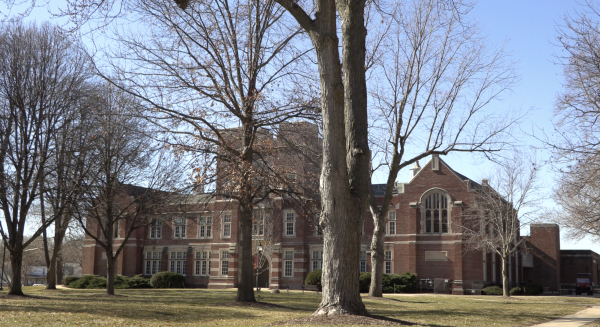Simpson programmers hack homelessness, win $5K
Tyler Godfrey, Nate Hayes and Esteban Sierra taveled to St. Louis to participate in a hackathon event. Their task was to help homeless people, and their solution placed them fifth overall and $5,000 in prize money. (Photo: Courtesy of Nate Hayes)
October 31, 2016
ST. LOUIS — Create something to help homeless people. This was the task assigned to those competing in Globalhack VI, a hackathon event where participants work around the clock to build software solutions to real-world problems. The event took place Oct. 21-23 at the Chaifetz Arena in St. Louis.
Nate Hayes, Tyler Godfrey and Esteban Sierra represented Simpson College as a team at the hackathon event for the first time. They competed against nearly 200 other collegiate teams and returned from St. Louis with fifth place and $5,000 in prize money. They developed a GoFundMe prototype app which was designed to help people make ends meet until the next paycheck, preventing them from becoming homeless.
“They said this wasn’t going to be like most other programming competitions, so this was new for all of us,” Godfrey said. “But I really had no idea what I was getting into.”
But the event wasn’t a programming competition at all. Hayes said competitions are much shorter and more specific. The hackathon sought to solve a real-world problem, and the most innovative solutions won.
“At a programming competition, you might have 10 people who need to get from A to B, and you have to find the shortest route,” Hayes said. “This was a lot more vague: ‘Help homeless people.’ It was a lot more open-ended.”
Globalhack’s previous challenges included 100-200 participants. Globalhack VI was the organization’s biggest event yet, with nearly 2,5000 participants in youth, collegiate and professional divisions.
“I was quite pessimistic,” Hayes said. “It was our first time at a very large competition with a lot of people. I thought, statistically, we have a very low shot at doing well.”
Sierra, on the other hand, tried to set up a positive outlook early on.
“I know that thoughts are really powerful,” Sierra said. “I just wanted to keep that attitude. We were going to get as far as we were going to get.”
All members of the team felt an interruption in the positive energy, however, when they arrived and couldn’t connect to the internet.
“We just showed up and we were getting everything ready, and Nate’s Wi-Fi adapter didn’t work,” Sierra said. “We couldn’t take any notes on the problem, and everyone was working already.”
The team was forced to purchase a replacement adapter. They connected to the internet and immediately got to work, trying to make up for lost time.
“The majority of the time, I didn’t spend coding,” Hayes said. “I spent it walking around the arena trying to figure things out.”
Godfrey and Sierra said that Hayes would often disappear without notice and return to begin coding again. Sierra took advantage of the opportunity to learn from Hayes, a clear team leader.
“I learned PHP just by watching Nate,” Sierra said. “Once you know the basics, computer language is like any language. You can just mix stuff together and get something done.”
The competition spanned from Oct. 21-23, a total of nearly 36 hours. Of those 36 hours, Godfrey and Sierra said they got the most sleep with approximately six hours each while Hayes received three.
“I learned how long your brain can be active without sleeping,” Sierra said.
Events like yoga and a dance were held in an attempt to pull programmers away from their computers for much-needed breaks.
“You sleep just enough to make sure that you don’t fall asleep when you really need to stay awake, like when you’re presenting or in between sessions,” Hayes said.
On the final presentation day, the team was led to the room where they would deliver the demo of their completed project. The room was boxed in by concrete walls, which Hayes knew was a bad sign.
Their demo began successfully, and the first page loaded without issue. However, 30 seconds in, they lost connection, and their demo died.
“(Judges) were already running about three hours behind schedule, so they were rushing people through,” Hayes said. “They said if bad things happen, life happens. Keep moving.”
Hayes said he wishes the Wi-Fi had been stronger, but the connectivity issue was not unique to their team’s final demo presentation.
“The final scores went in order of how long the demos lasted before losing connection,” Hayes said. “There were two other teams that had Wi-Fi cut out on them. If ours had lasted even two minutes longer, we would have scored so much better.”
The project won fifth place based on the demo, and team members went home with over $1,600 each. But they said their focus isn’t on the recognition or the prize money.
“In one weekend we could potentially do so much more than so many other people just because of the major we chose,” Hayes said. “We have this great ability to affect a lot of people.”
Sierra and Godfrey said they eagerly anticipate more opportunities like this in the future.
“When you think of computer scientists, you think of websites, apps, but you don’t think of solving homelessness,” Sierra said. “That gave real value to what I was doing.”



